Authors & editors
ANU Press has collaborated with a diverse range of authors and editors across a wide variety of academic disciplines. Browse the ANU Press collection by author or editor.

Burgmann Journal- Research Debate Opinion: Issue 5, 2016 »
Publication date: December 2016
Burgmann Journal is an interdisciplinary, peer-reviewed publication of collected works of research, debate and opinion from residents and alumni of Burgmann College designed to engage and stimulate the wider community.
Download for free
Not available for purchase

Bridging Australia and Japan: Volume 1 »
The writings of David Sissons, historian and political scientist
Edited by: Arthur Stockwin, Keiko Tamura
Publication date: December 2016
This book represents volume one of the writings of David Sissons, who for most of his career pioneered research on the history of relations between Australia and Japan. Much of what he wrote remained unpublished at the time of his death in 2006, and so the editors have included a selection of his hitherto unpublished work along with some of his published writings. Breaking Japanese Diplomatic Codes, edited by Desmond Ball and Keiko Tamura, was published in 2013 and forms a part of the series that reproduces many of Sissons’ writings. In the current volume, the topics covered are wide. They range from contacts between the two countries as far back as the early 19th century, Japanese pearl divers in northern Australia, Japanese prostitutes in Australia, the wool trade, the notorious ‘trade diversion episode’ of 1936, and a study of the Japan historian James Murdoch.
Sissons was an extraordinarily meticulous researcher, leaving no stone unturned in his search for accuracy and completeness of understanding, and should be considered one of Australia’s major historians. His writings deal with not only diplomatic negotiations and decision-making, but also the lives of ordinary and often nameless people and their engagements with their host society. His warm humanity in recording ordinary people’s lives as well as his balanced examination of historical incidents and issues from both Australian and Japanese perspectives are a hallmark of his scholarship.
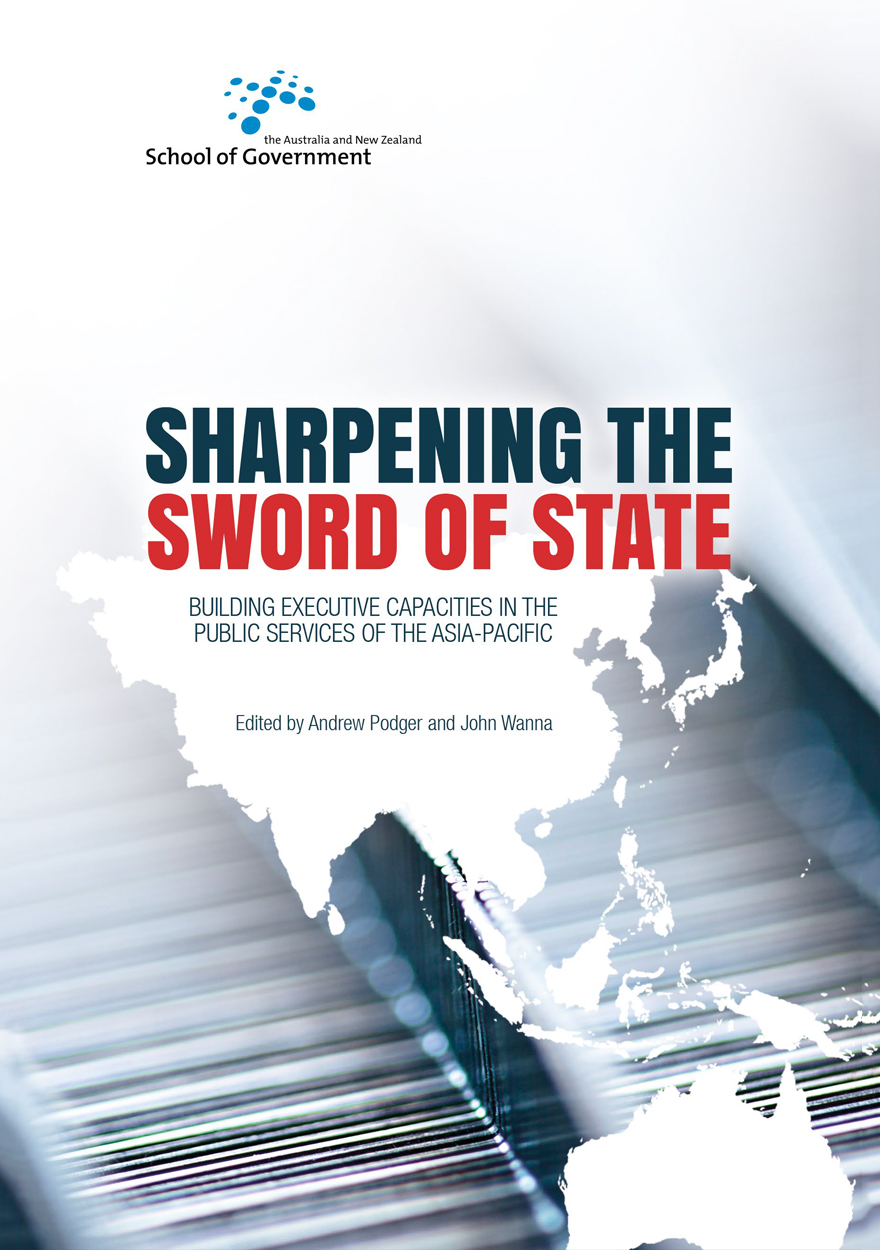
Sharpening the Sword of State »
Building executive capacities in the public services of the Asia-Pacific
Edited by: Andrew Podger, John Wanna
Publication date: November 2016
Sharpening the Sword of State explores the various ways in which 10 jurisdictions in the Asia-Pacific enhance their administrative capabilities through training and executive development. It traces how modern governments across this region look to develop their public services and public sector organisations in the face of rapid global change. For many governments there is a delicate balance between the public interest in promoting change and capacity enhancement across the public service, and the temptation to micro-manage agencies and be complacent about challenging the status quo. There is a recognition in the countries studied that training and executive development is a crucial investment in human capital but is also couched in a much wider context of public service recruitment, patterns of entry and retention, promotion, executive appointment and career development. This empirical volume, authored by academics and practitioners, is one of the first to chart these comparative differences and provide fresh perspectives to enable learning from international experiences.

East Asia Forum Quarterly: Volume 8, Number 4, 2016 »
Publication date: November 2016
East Asia Forum Quarterly grew out of East Asia Forum (EAF) online, which has developed a reputation for providing a platform for the best in Asian analysis, research and policy comment on the Asia Pacific region in world affairs. EAFQ aims to provide a further window onto research in the leading research institutes in Asia and to provide expert comment on current developments within the region. The East Asia Forum Quarterly, like East Asia Forum online, is an initiative of the East Asia Forum (EAF) and its host organisation, the East Asian Bureau of Economic Research (EABER) in the Crawford School of Economics and Government in the College of Asia & the Pacific at The Australian National University.
Download for free
Not available for purchase

Deep Crustal Seismic Reflection Profiling »
Australia 1978–2015
Authored by: Brian Kennett, E. Saygin, T. Fomin, Richard Blewett
Publication date: November 2016
Deep Crustal Seismic Reflection Profiling: Australia 1978–2015 presents the full suite of reflection profiles penetrating the whole crust carried in Australia by Geoscience Australia and various partners.
The set of reflection data comprises over 16,000 km of coverage across the whole continent, and provides an insight into the variations in crustal architecture in the varied geological domains. Each reflection profile is presented at approximately true scale with up to 220 km of profile per page and overlap between pages. Each reflection section is accompanied by a geological strip map showing the configuration of the line superimposed on 1:1M geology. The compilation includes a suite of large-scale reflection transects groups of 1,000 km or more that link across major geological provinces, and an extensive bibliography of reports and relevant publications.

Family Experiments »
Middle-class, professional families in Australia and New Zealand c. 1880–1920
Authored by: Shelley Richardson
Publication date: November 2016
Family Experiments explores the forms and undertakings of ‘family’ that prevailed among British professionals who migrated to Australia and New Zealand in the late nineteenth century. Their attempts to establish and define ‘family’ in Australasian, suburban environments reveal how the Victorian theory of ‘separate spheres’ could take a variety of forms in the new world setting.
The attitudes and assumptions that shaped these family experiments may be placed on a continuum that extends from John Ruskin’s concept of evangelical motherhood to John Stuart Mill’s rational secularism. Central to their thinking was a belief in the power of education to produce civilised and humane individuals who, as useful citizens, would individually and in concert nurture a better society.
Such ideas pushed them to the forefront of colonial liberalism. The pursuit of higher education for their daughters merged with and, in some respects, influenced first-wave colonial feminism. They became the first generation of colonial, middle-class parents to grapple not only with the problem of shaping careers for their sons but also, and more frustratingly, what graduate daughters might do next.

Indigenous Data Sovereignty »
Toward an agenda
Edited by: Tahu Kukutai, John Taylor
Publication date: November 2016
As the global ‘data revolution’ accelerates, how can the data rights and interests of indigenous peoples be secured? Premised on the United Nations Declaration on the Rights of Indigenous Peoples, this book argues that indigenous peoples have inherent and inalienable rights relating to the collection, ownership and application of data about them, and about their lifeways and territories. As the first book to focus on indigenous data sovereignty, it asks: what does data sovereignty mean for indigenous peoples, and how is it being used in their pursuit of self-determination?
The varied group of mostly indigenous contributors theorise and conceptualise this fast-emerging field and present case studies that illustrate the challenges and opportunities involved. These range from indigenous communities grappling with issues of identity, governance and development, to national governments and NGOs seeking to formulate a response to indigenous demands for data ownership. While the book is focused on the CANZUS states of Canada, Australia, Aotearoa/New Zealand and the United States, much of the content and discussion will be of interest and practical value to a broader global audience.
‘A debate-shaping book … it speaks to a fast-emerging field; it has a lot of important things to say; and the timing is right.’
— Stephen Cornell, Professor of Sociology and Faculty Chair of the Native Nations Institute, University of Arizona
‘The effort … in this book to theorise and conceptualise data sovereignty and its links to the realisation of the rights of indigenous peoples is pioneering and laudable.’
— Victoria Tauli-Corpuz, UN Special Rapporteur on the Rights of Indigenous Peoples, Baguio City, Philippines

Reluctant Representatives »
Blackfella bureaucrats speak in Australia’s north
Authored by: Elizabeth Ganter
Publication date: November 2016
‘How can you make decisions about Aboriginal people when you can’t even talk to the people you’ve got here that are blackfellas?’ So ‘Sarah’, a senior Aboriginal public servant, imagines a conversation with the Northern Territory Public Service. Her question suggests tensions for Aboriginal and Torres Strait Islanders who have accepted the long-standing invitation to join the ranks of the public service.
Reluctant Representatives gives us a rare glimpse into the working world of the individuals behind the Indigenous public sector employment statistics. This empathetic exposé of the challenges of representative bureaucracy draws on interviews with Aboriginal and Torres Strait Islander Australians who have tried making it work. Through Ganter’s engaging narration, we learn that the mere presence of Aboriginal and Torres Strait Islanders in the public service is not enough. If bureaucracies are to represent the communities they serve, Aboriginal and Torres Strait Islander public servants need to be heard and need to know their people are heard.
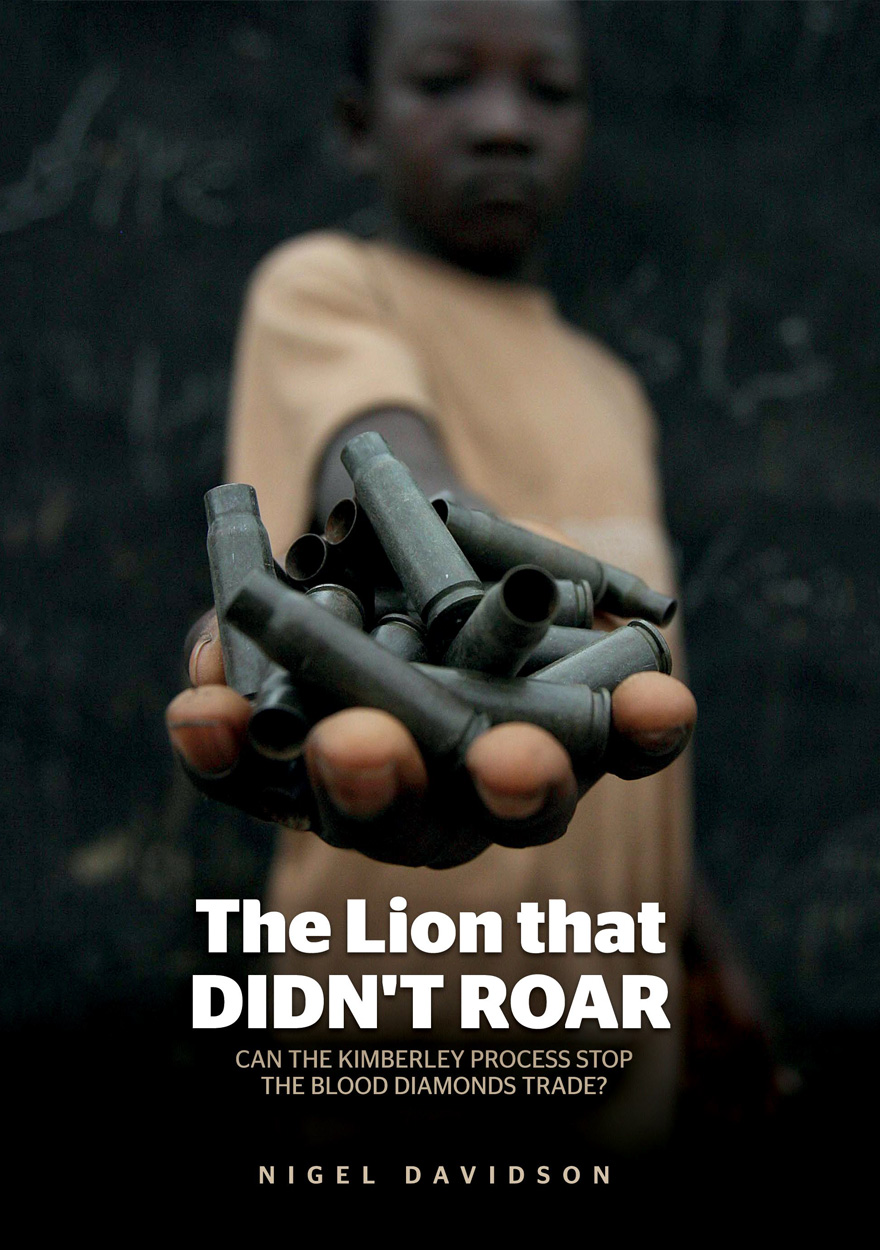
The Lion that Didn't Roar »
Can the Kimberley Process Stop the Blood Diamonds Trade?
Authored by: Nigel Davidson
Publication date: October 2016
In 2017 it will be Australia’s turn to chair the Kimberley Process Certification Scheme (KP), an international organisation set up to regulate the trade in diamonds. Diamonds are a symbol of love, purchased to celebrate marriage, and it is therefore deeply ironic that the diamond trade has become linked with warfare and human rights violations committed in African producer countries such as Sierra Leone, the Democratic Republic of Congo and, more recently, Zimbabwe and Angola. In their quest for diamonds, or by using diamonds to purchase weapons, armed groups in these countries have engaged in recruiting child soldiers, amputating limbs, and committing rape and murder. In response to the problem, the international community, non-governmental organisations and key industry players such as De Beers combined forces to create the Kimberley Process in 2002. The KP uses an export certificate system to distinguish the legitimate rough diamond trade from so-called ‘blood diamonds’, which are also known as ‘conflict diamonds’. This book considers the extent to which the KP, supported by other agencies at the international and national levels, has been effective in achieving its mandate. In so doing, it presents an original model derived from the domain of regulatory theory, the Dual Networked Pyramid, as a means of describing the operation of the system and suggesting possible improvements that might be made to it.
Nigel Davidson spoke with 936 ABC Hobart about what Australia can do to help stop blood diamonds. Listen to the full interview here.

Party Rules? »
Dilemmas of political party regulation in Australia
Edited by: Anika Gauja, Marian Sawer
Publication date: October 2016
Trust in political parties has never been lower, but we have more and more of them, to the point where voters need magnifying sheets to read ballot papers. What is the relationship between party regulation and the nature of our democracy? How is it that parties have been able to gather so many public resources yet with so little scrutiny of their affairs? This is the first book on party regulation in Australia. It covers a wide range of issues, from party donations to candidate selection, from expectations of parties in a representative democracy to the reluctance to regulate and the role of the courts where legislators fear to tread.
‘The regulation of political parties is one of the most important, but unexplored areas of Australian electoral policy. This important book fills that gap in providing a stimulating and insightful analysis of the pitfalls and potential solutions in this area.’
— Professor George Williams AO

Population Ageing and Australia's Future »
Publication date: October 2016
This volume provides evidence from many of Australia’s leading scholars from a range of social science disciplines to support policies that address challenges presented by Australia’s ageing population. It builds on presentations made to the 2014 Symposium of the Academy of the Social Sciences in Australia.
The material is in four parts:
Perspectives on Ageing
Population Ageing: Global, regional and Australian perspectives
Improving Health and Wellbeing
Responses by Government and Families/Individuals
‘The Academy of the Social Sciences in Australia sees this volume as a major contribution to improving our understanding of Australia’s population ageing. Social science research in this area truly underpins our ability as a nation to manage such demographic change, and its consequences for the economy and society. Such knowledge helps ensure that our citizens can live even better lives.’
— Glenn Withers, President, ASSA
‘It is fantastic that Australians are living longer and healthier lives but we need to address these demographic changes.’
— The Hon Joe Hockey MP, 2015 Intergenerational Report

A Difficult Neighbourhood »
Essays on Russia and East-Central Europe since World War II
Authored by: John Besemeres
Publication date: October 2016
Through a series of essays on key events in recent years in Russia, the western ex-republics of the USSR and the countries of the one-time Warsaw Pact, John Besemeres seeks to illuminate the domestic politics of the most important states, as well as Moscow’s relations with all of them. At the outset, he takes some backward glances at the violent suppression of national life in the ‘bloodlands’ of Europe during World War II by the Stalinist and Nazi regimes, which helps to explain much about the region’s dynamics since. His concern throughout is that a large area of Europe with a combined population well in excess of Russia’s could again be consigned by the West to Moscow’s care, not this time by more and less malign forms of collusion, but by distracted negligence or incomprehension.
‘This is a wonderful collection of essays from a leading Eastern Europe specialist. John Besemeres brings a lifetime of experience, profound insights, and an incisive style to subjects ranging from wartime and post-war Poland through contemporary Ukraine to Putin’s Russia. At a time when doublespeak has become the new normal, his refreshing honesty has never been in greater need.’
— Bobo Lo
This publication was awarded a Centre for European Studies Publication Prize in 2015. The prize covers the cost of professional copyediting.

Made in China Journal: Volume 1, Issue 3, 2016 »
Publication date: September 2016
The core of this issue is dedicated to a special section on Chinese labour and investment in Africa, with a specific focus on Ghana and Zambia. You will also find an analysis of the current situation of the Chinese working classes and the prospects for the political representation of labour in China, as well as an examination of the struggles that Chinese workers face when they attempt to access the legal system. The issue also includes an overview of recent worker struggles in India and an essay on Zhao Liang’s Behemoth.
Download for free
Not available for purchase

Pollution »
Publication date: September 2016
Environmental pollution poses serious challenges for China, including to its economy as well as public health. The China Story Yearbook 2015: Pollution looks at how China’s Communist Party-state addresses these problems and how Chinese citizens have coped with and expressed their concerns about living with chronic, worsening pollution.
This Yearbook also explores the broader ramifications of pollution in the People’s Republic for culture, society law and social activism, as well as the Internet, language, thought, and approaches to history. It looks at how it affects economic and political developments, urban change, and China’s regional and global posture. The Chinese Communist Party, led by ‘Chairman of Everything’ Xi Jinping, meanwhile, has subjected mainland society to increasingly repressive control in its new determination to rid the country of Western ‘spiritual pollutants’ while achieving cultural purification through ‘propaganda and ideological work’.
To adulterate, contaminate, spoil or violate—these are among the metaphorical and literal connotations of pollution expressed in this Yearbook via the character ran 染, which forms part of the word for pollution in Chinese, wuran 污染. As the world increasingly relies on economic ties with China, the complexities of China’s one-party system and the Chinese government’s attitudes towards ‘pollution’ are of increasing global significance.
Chapter notes are available to view online.

East Asia Forum Quarterly: Volume 8, Number 3, 2016 »
Publication date: September 2016
East Asia Forum Quarterly grew out of East Asia Forum (EAF) online, which has developed a reputation for providing a platform for the best in Asian analysis, research and policy comment on the Asia Pacific region in world affairs. EAFQ aims to provide a further window onto research in the leading research institutes in Asia and to provide expert comment on current developments within the region. The East Asia Forum Quarterly, like East Asia Forum online, is an initiative of the East Asia Forum (EAF) and its host organisation, the East Asian Bureau of Economic Research (EABER) in the Crawford School of Economics and Government in the College of Asia & the Pacific at The Australian National University.
Download for free
Not available for purchase
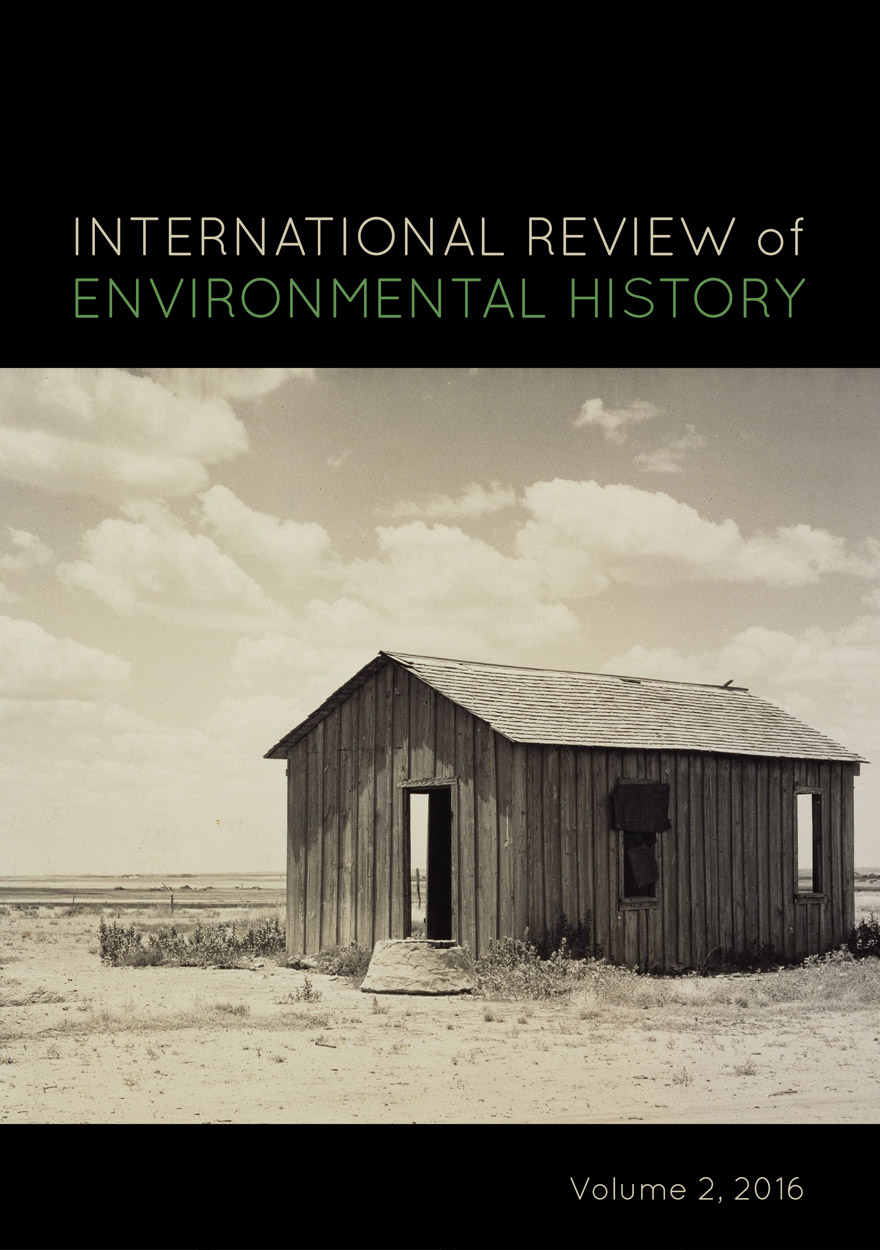
International Review of Environmental History: Volume 2, 2016 »
Edited by: James Beattie
Publication date: September 2016
International Review of Environmental History takes an interdisciplinary and global approach to environmental history. It encourages scholars to think big and to tackle the challenges of writing environmental histories across different methodologies, nations, and time-scales. The journal embraces interdisciplinary, comparative and transnational methods, while still recognising the importance of locality in understanding these global processes.
The journal’s goal is to be read across disciplines, not just within history. It publishes on all thematic and geographic topics of environmental history, but especially encourage articles with perspectives focused on or developed from the southern hemisphere and the ‘global south’.
Download for free
Not available for purchase
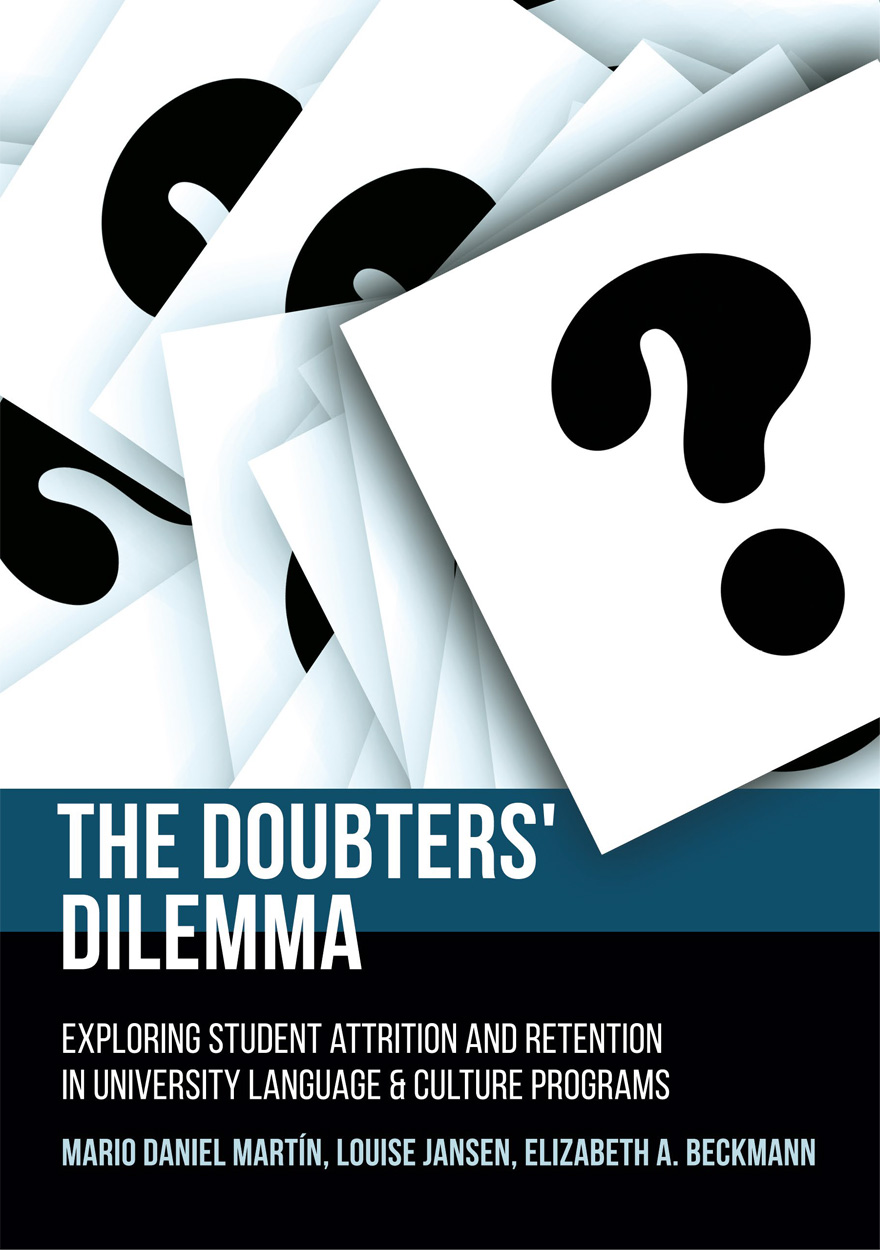
The Doubters' Dilemma »
Exploring student attrition and retention in university language and culture programs
Publication date: August 2016
This book explores the extent and causes of attrition and retention in university Language & Culture (L&C) programs through a detailed analysis of an institutional case study at The Australian National University (ANU). Using extensive data collected through student surveys, coupled with data mining of university-wide enrolment data, the authors explore the enrolment and progress of students in all ANU L&C programs. Through their detailed statistical analysis of attrition and retention outcomes, the authors reveal serious inadequacies in the traditional, and common, methodology for determining the extent of student attrition and retention in tertiary L&C programs. Readers are shown why a year-to-year comparison of students who continue or discontinue language studies using traditional statistical methodology cannot provide data that is sufficiently meaningful to allow for sound policy- and decision-making. The authors instead suggest a more valid, replicable methodology that provides a new approach potentially applicable to all disciplines and all student retention measures. The authors also demonstrate that the empirical data supports a new hypothesis for the reasons for attrition, based on students’ relative belief or doubt in their capacity to complete their studies successfully. By highlighting the importance of language capital as a factor in students’ concerns about their capacity for success, and hence in their decisions to stay in, or leave, a university language program, the authors show the importance of the ‘doubters’ dilemma’. By taking a rigorous approach to hypothesis building and testing around enrolment and attrition data, the authors provide valuable insights into attrition issues, and potential retention strategies, in L&C programs, which will be relevant to institutions, policy-makers and teaching academics.
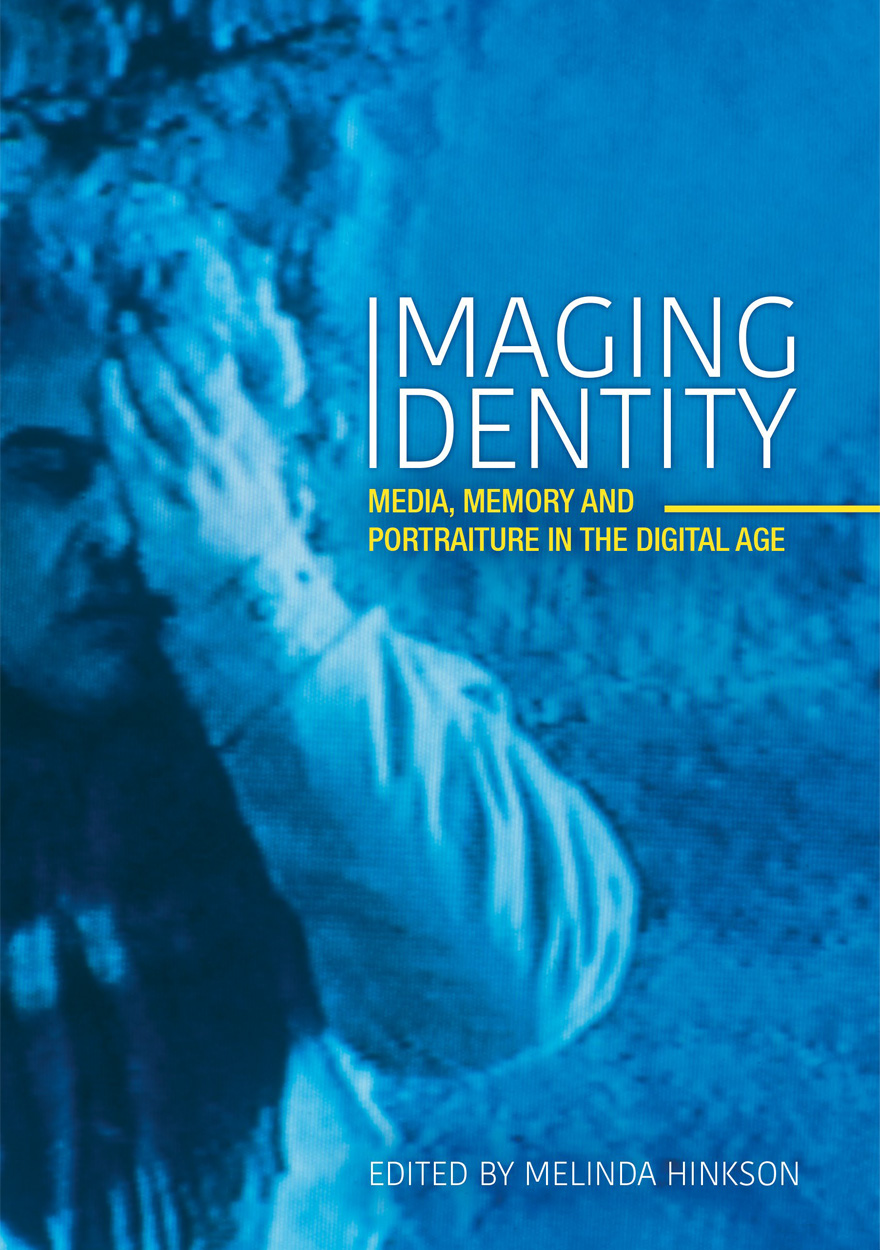
Imaging Identity »
Media, memory and portraiture in the digital age
Edited by: Melinda Hinkson
Publication date: August 2016
Imaging Identity presents potent reflections on the human condition through the prism of portraiture. Taking digital imaging technologies and the dynamic and precarious dimensions of contemporary identity as critical reference points, these essays consider why portraits continue to have such galvanising appeal and perform fundamental work across so many social settings. This multidisciplinary enquiry brings together artists, art historians, art theorists and anthropologists working with a variety of media. Authors look beyond conventional ideas of the portrait to the wider cultural contexts, governmental practices and intimate experiences that shape relationships between persons and pictures. Their shared purpose centres on a commitment to understanding the power of images to draw people into their worlds. Imaging Identity tracks a fundamental symbiosis — to grapple with the workings of images is to understand something vital of what it is to be human.
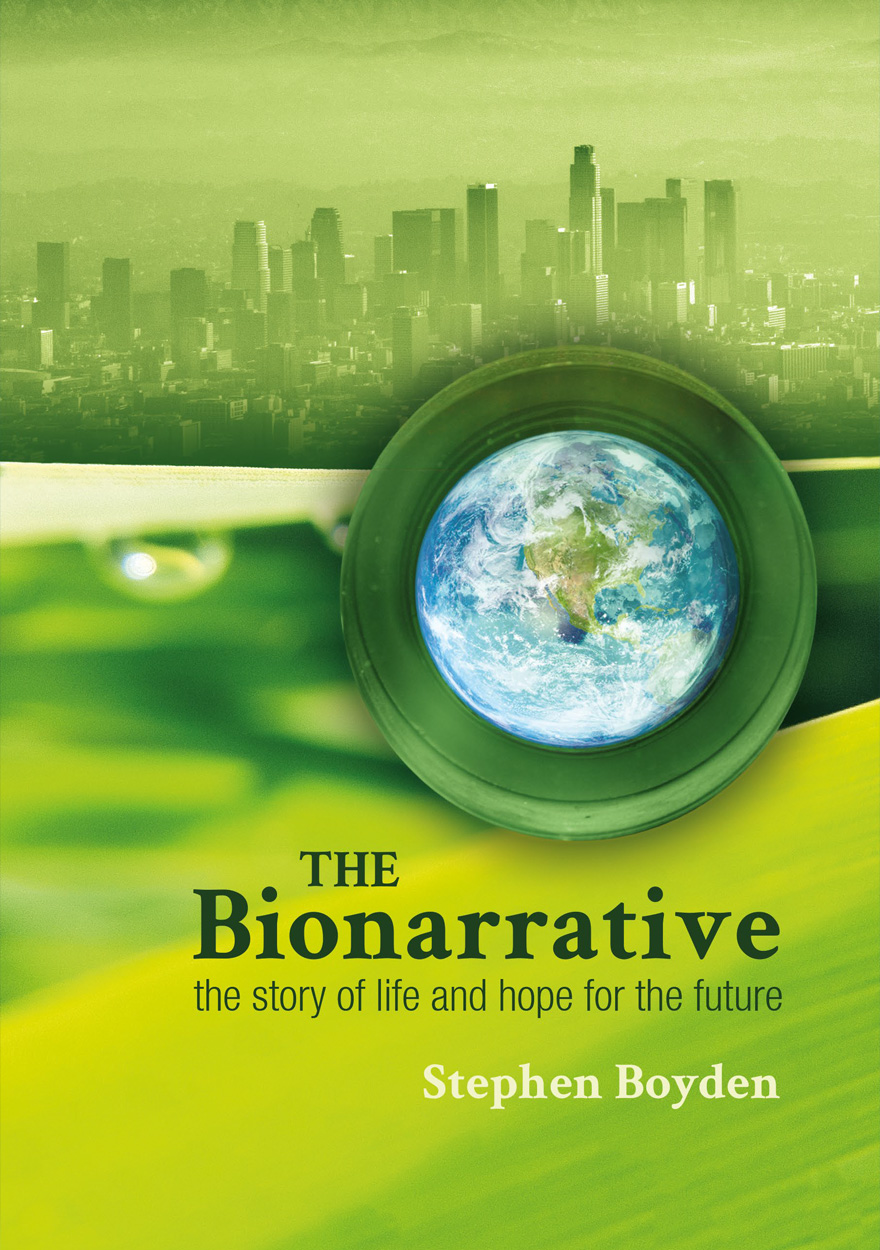
The Bionarrative »
The story of life and hope for the future
Authored by: Stephen Boyden
Publication date: August 2016
This book is for the general reader interested in the human place in nature and the future of civilisation. It is based on the biohistorical approach to the study of human situations. This approach recognises human culture as a new and extremely important force in the biosphere.
The book discusses the evolution of life and the essential ecological processes on which all life, including human civilisation, depend. It describes the conditions of life and ecology of humans in the four ecological phases in human history, with emphasis on the impacts of human culture on biological systems.
It explains how, as cultures evolved, they often came to embrace not only factual information of good practical value, but also assumptions that are sheer nonsense, sometimes leading to activities that caused unnecessary human distress or damage to local ecosystems. These are examples of cultural maladaptation. There have been countless instances of cultural maladaptation in human history.
The days of the fourth ecological phase of human history, the Exponential Phase, are numbered. Cultural maladaptations are now on a massive scale, and business as usual will inevitably lead to the ecological collapse of civilisation.
The only hope for the survival of civilisation lies in radical changes in the worldviews and priorities of the prevailing cultures of the world, leading to a fifth ecological phase — a phase in which human society is truly sensitive to, in tune with and respectful of the processes of life. This is called a biosensitive society. The book concludes with discussion on the essential characteristics of a biosensitive society and on the means by which the necessary cultural transformation might come about.

Unintended Consequences »
The impact of migration law and policy
Publication date: August 2016
This book arose from an inaugural conference on Migration Law and Policy at the ANU College of Law. The conference brought together academics and practitioners from a diverse range of disciplines and practice. The book is based on a selection of the papers and presentations given during that conference. Each explores the unexpected, unwanted and sometimes tragic outcomes of migration law and policy, identifying ambiguities, uncertainties, and omissions affecting both temporary and permanent migrants. Together, the papers present a myriad of perspectives, providing a sense of urgency that focuses on the immediate and political consequences of an Australian migration milieu created without due consideration and exposing the daily reality under the migration program for individuals and for society as a whole.

A National Asset »
50 Years of the Strategic and Defence Studies Centre
Edited by: Desmond Ball, Andrew Carr
Publication date: August 2016
This volume commemorates the 50th anniversary of the Strategic and Defence Studies Centre (SDSC). The Centre is Australia’s largest body of scholars dedicated to the analysis of the use of armed force in its political context and one of the earliest generation of post-World War II research institutions on strategic affairs. The book features chapters replete with stories of university politics, internal SDSC activities, cooperation among people with different social and political values, and conflicts between others, as well as the Centre’s public achievements. It also details the evolution of strategic studies in Australia and the contribution of academia and defence intellectuals to national defence policy.
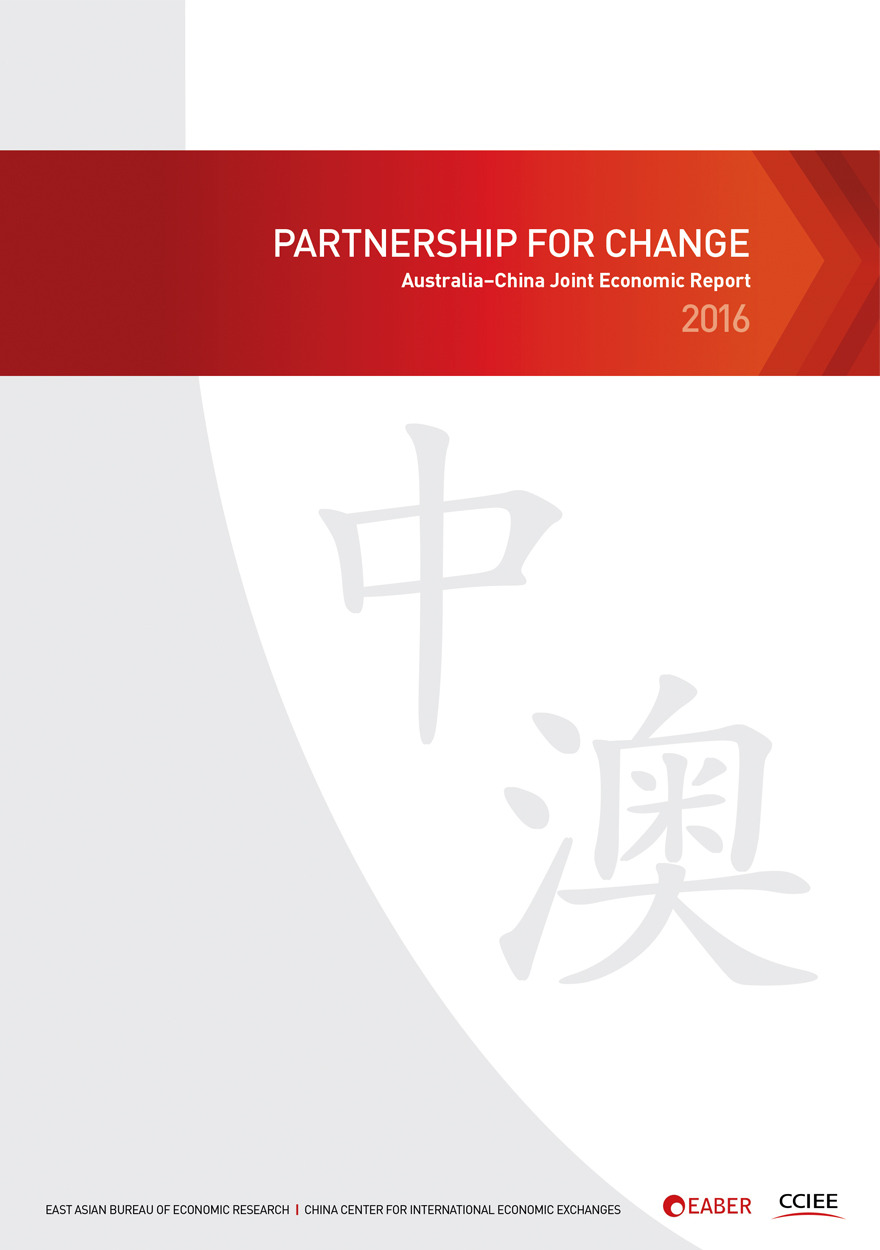
Partnership for Change »
Australia–China Joint Economic Report
Authored by: East Asian Bureau of Economic Research, China Center for International Economic Exchanges
Publication date: August 2016
The Australia–China Joint Economic Report is the first major independent joint study of the bilateral relationship and has the blessing of both national governments. The Report is an academic policy study by leading researchers in both Australia and China. It draws policy conclusions to guide the development of bilateral economic relations that include an Australia–China Comprehensive Strategic Partnership for Change, an Australia–China Commission, and an Australia–China Basic Treaty of Cooperation.

Better Than Welfare? »
Work and livelihoods for Indigenous Australians after CDEP
Edited by: Kirrily Jordan
Publication date: August 2016
The end of the very long-standing Community Development Employment Projects (CDEP) scheme in 2015 marked a critical juncture in Australian Indigenous policy history. For more than 30 years, CDEP had been among the biggest and most influential programs in the Indigenous affairs portfolio, employing many thousands of Aboriginal and Torres Strait Islander people. More recently, it had also become a focus of intense political contestation that culminated in its ultimate demise.
This book examines the consequences of its closure for Indigenous people, communities and organisations. The end of CDEP is first situated in its broader historical and political context: the debates over notions of ‘self-determination’ versus ‘mainstreaming’ and the enduring influence of concerns about ‘passive welfare’ and ‘mutual obligation’. In this way, the focus on CDEP highlights more general trends in Indigenous policymaking, and questions whether the dominant government approach is on the right track.
Each chapter takes a different disciplinary approach to this question, variously focusing on the consequences of change for community and economic development, individual work habits and employment outcomes, and institutional capacity within the Indigenous sector. Across the case studies examined, the chapters suggest that the end of CDEP has heralded the emergence of a greater reliance on welfare rather than the increased employment outcomes the government had anticipated. Concluding that CDEP was ‘better than welfare’ in many ways, the book offers encouragement to policymakers to ensure that future reforms generate livelihood options for Aboriginal and Torres Strait Islander Australians that are, in turn, better than CDEP.
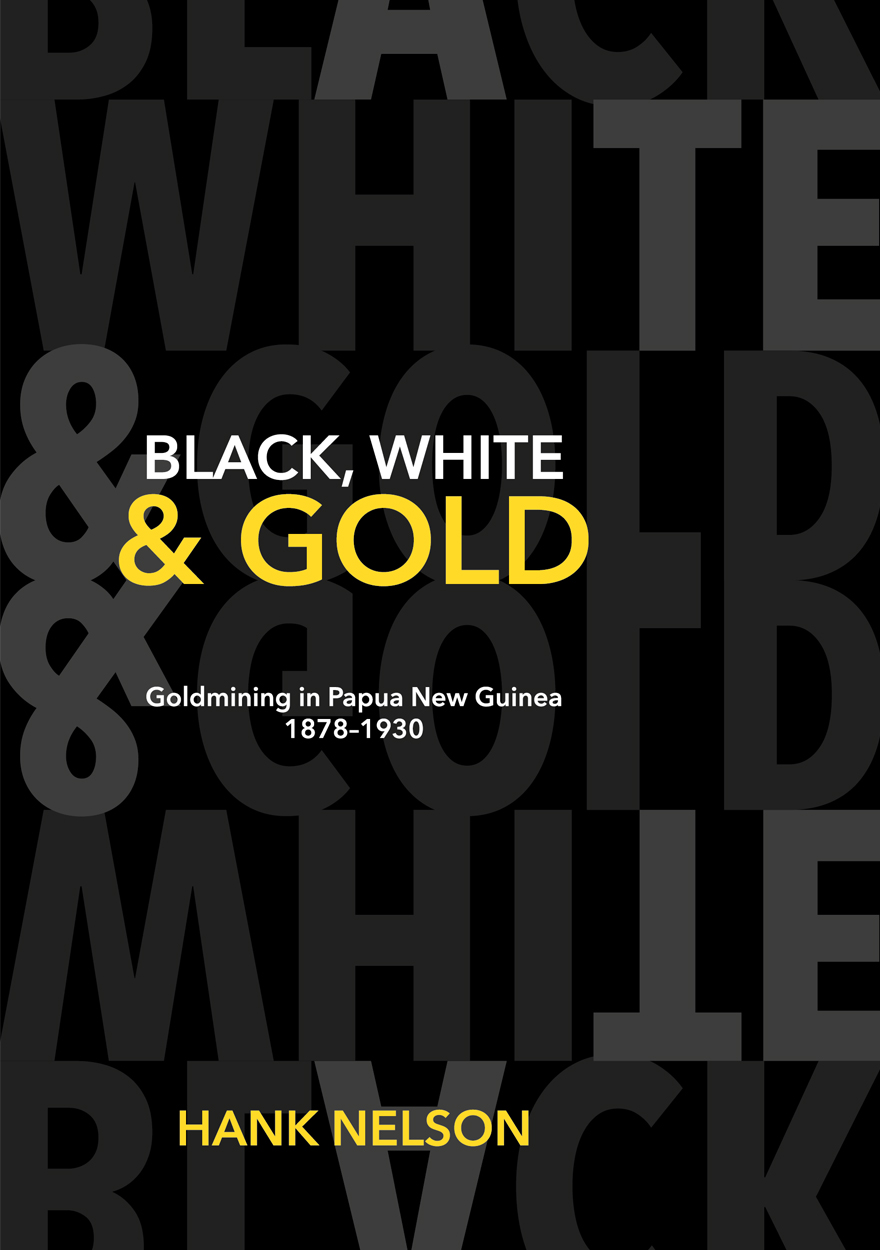
Black, White and Gold »
Goldmining in Papua New Guinea 1878–1930
Authored by: Hank Nelson
Publication date: July 2016
Australian goldminers were among the first white men to have sustained contact with Papua New Guineans. Some Papua New Guineans welcomed them, worked for them, traded with them and learnt their skills and soon were mining on their own account. Others met them with hostility, either by direct confrontation or by stealthy ambush. Many of the indigenous people and some miners were killed.
The miners were dependent on the local people for labourers, guides, producers of food and women. Some women lived willingly in the miners’ camps, a few were legally married, and some were raped.
Working conditions for Papua New Guineans on the claims were mixed; some being well treated by the miners, others being poorly housed and fed, ill-treated, and subject to devastating epidemics. Conditions were rough, not only for them but for the diggers too.
This book, republished in its original format, shows the differences in the experience of various Papua New Guinean communities which encountered the miners and tries to explain these differences. It is a graphic description of what happens when people from vastly different cultures meet. The author has drawn on documentary sources and interviews with the local people to produce, for the first time, a lively history.
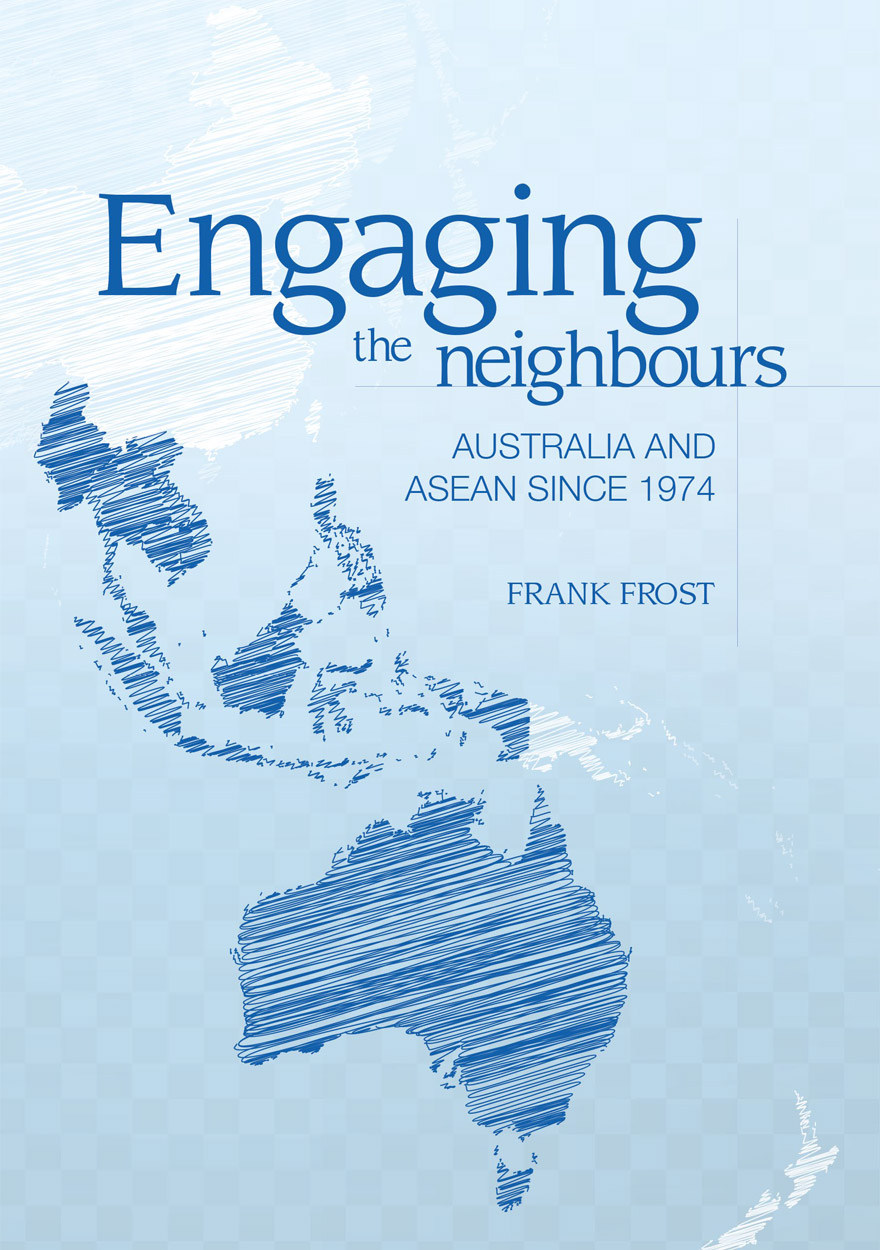
Engaging the neighbours »
Australia and ASEAN since 1974
Authored by: Frank Frost
Publication date: July 2016
From modest beginnings in 1967, the Association of Southeast Asian Nations (ASEAN) has become the premier regional institution in Southeast Asia. The 10 members are pursuing cooperation to develop the ‘ASEAN Community’ and also sponsor wider dialogues that involve the major powers. Australia has been interested in ASEAN since its inauguration and was the first country to establish a multilateral link with the Association, in 1974. Australia and ASEAN have subsequently engaged and cooperated on many issues of mutual concern, including efforts to secure an agreement to resolve the Cambodia conflict (signed in 1991), the initiation of the Asia-Pacific Economic Cooperation grouping (1989) and the ASEAN Regional Forum (1994), the conclusion of the ASEAN–Australia–New Zealand Free Trade Agreement (signed in 2008) and the development of the East Asia Summit (from 2005).
This book provides the first available detailed history of the evolution of Australia’s interactions with ASEAN. It assesses the origins and phases of development of Australia’s relations with ASEAN; the role ASEAN has played in Australian foreign policy since the 1970s; the ways in which the two sides have collaborated, and at times disagreed, in the pursuit of regional stability and security; and the key factors that will influence the relationship as it moves into its fifth decade.



